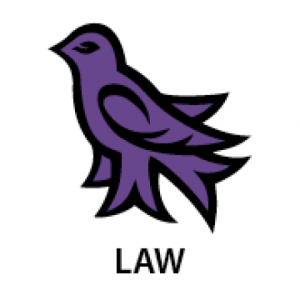
Your time at UVic Law, particularly your first year, is exciting and full of new experiences. Incoming students have asked us for a realistic picture of what being a student at UVic Law looks like. If you have any suggestions for information you would like to see, please let us know!
Schedule and time commitments
Following is a mock schedule for a first year student. This is not an actual schedule for a first year student. Class times may vary.
| Semester | Courses | Date | Time |
| Fall | 100 | M/W | 11:00AM – 12:20PM |
| 102 | T/R | 3:30PM – 4:20PM | |
| 104 | T/R | 11:00AM – 12:20PM | |
| 105 | F | 10:30AM – 12:20PM | |
| 106 | Sept 6-16 | 9:00AM – 3:30PM | |
| 107 | T/R | 2:30PM – 3:20PM | |
| 109 | W/F | 10:00AM – 10:50AM and 9:30AM – 10:20AM | |
| 110 | M | 9:00AM – 9:50AM | |
| 110 Tutorial | T | 9:00AM – 9:50AM | |
| Spring | 100 | M/W | 11:00AM – 12:20PM |
| 102 | M/W | 3:00PM – 4:20PM | |
| 105 | T/R | 9:00AM – 10:20AM | |
| 106 | Start of Semester | ? | |
| 107 | T/R | 1:30PM – 2:50 | |
| 109 | T/R | 11:00AM – 12:20PM | |
| 110 | M/W | 9:00AM – 9:50AM | |
| 110 Tutorial | W | 9:00AM – 9:50AM |
As you can see from the schedule, classes on Fridays are less common. This student spends between 1 and 5.5 hours in class per day. However, this averages out as about 4 hours in class per day.
Clearly, study time will vary by student. For some, the material may come easy. However, it is more common for students accustomed to doing quite well in school finding themselves working harder than they have in the past to understand the material. Most students report that this gets easier with time, often pointing to a “lightbulb moment” when the material begins to make more sense. During the first year, students can expect to spend an average of 2 hours studying for each hour of class.
For many students, law school indicates a need for a heightened commitment to time management skills and prioritization. Classes and study time represent a commitment larger than a full-time job. Thus, it is recommended that during their first year of full-time studies, students do not take on additional employment.
UVic Law prides itself in a strong sense of community and collaborative environment. Groups and offices like the Law Student Society, the Law Careers Office, and Amicus will often hold events during the lunch hours and evenings. There is likely at least one available event for every day of each term, including some that require travel. While these can be fun and informative, attending all available events would be overwhelming for even the most social of students. It is recommended that students choose the events they are most interested in and avoid overcommitting. Additionally, when events require registration, this is seen as a professional commitment. Many of our events are catered or feature speakers who travel in. Registration helps us cut down on food waste and not overspend on travel.
Tuition and funding
The updated cost of full-time study can be found here.
The above hyperlink also has a useful video regarding funding. It talks mostly about the law bursary process, but it also touches on other funding sources and contains useful contacts, should you have questions about funding.
If you are a JD/JID student, and you apply for a Professional Student Line of Credit, it’s important to ensure that your bank recognizes this degree as a four year program, so that you are not required to repay the line of credit while still a student.
Perhaps the largest expense that any UVic student will have is housing. Victoria hosts a very competitive housing market, and it’s recommended that students begin their housing search far in advance of their attendance. On campus housing tends to be more affordable than off-campus housing. One bedroom rental units off-campus can cost upwards of $2000 per month. Many students opt to house, apartment, or room share to decrease costs.
More information on on-campus housing can be found here.
More information on off-campus housing can be found here.
When students budget for the year, they should plan on and research the following expenses:
- Housing, including relevant maintenance costs
- Utilities and other monthly payments, including debt payments
- Transportation, including parking, bus fare, and ride share costs, as well as maintenance costs for vehicles and gas
- Groceries and personal spending
- Insurance
- Recreation and entertainment
- Emergency funds
Additionally, many law students find they need to budget for:
- Professional clothing
- Travel for interviews, particularly if they do not plan to work in Victoria after graduation
- Travel to Vancouver for Law Careers Office (LCO) events
- Travel home
- Conference, events, and party fees
Canada has created a budget planner that may be helpful for incoming students.